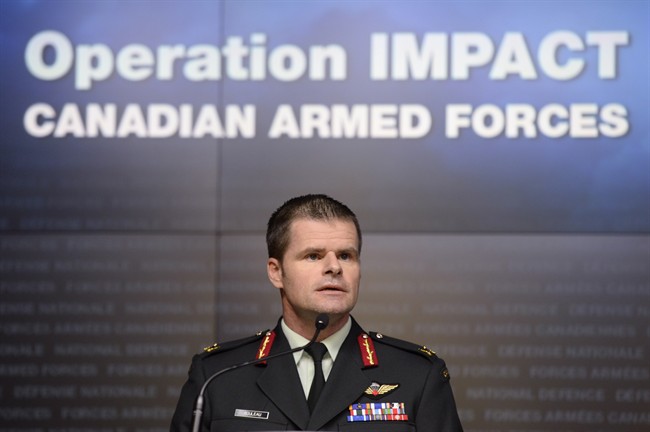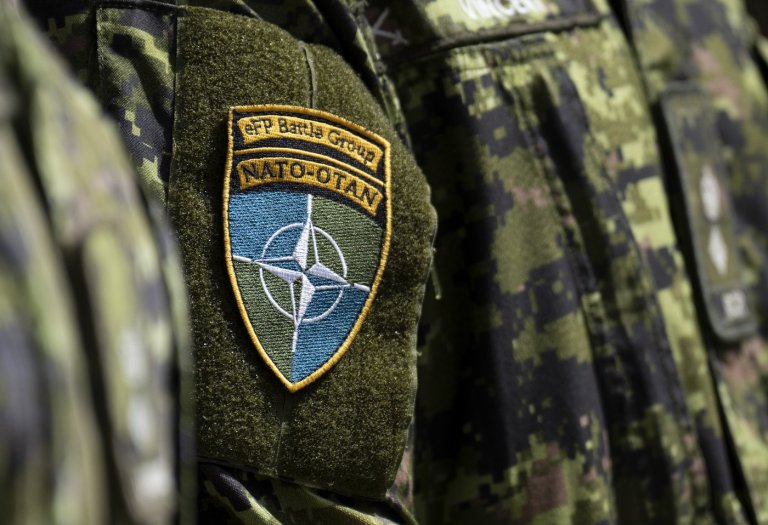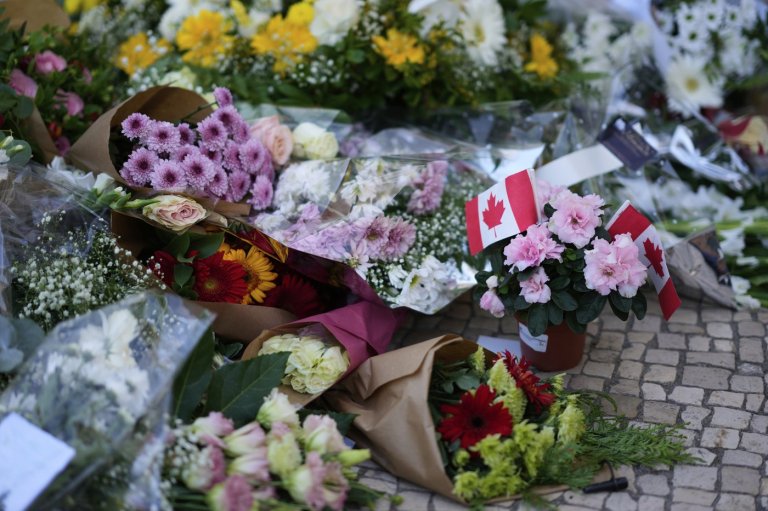
Friendly-fire death in Iraq ‘tragic case of mistaken identity’ in the dark
OTTAWA – The Canadian military has officially deemed the friendly fire death of Sgt. Andrew Doiron “a tragic case of mistaken identity,” but key questions remain unanswered about the investigation and whether the Kurdish fighter who opened fire will face any disciplinary action.
A carefully edited summary of three separate reports was released Tuesday and concluded the late night burst of gunfire west of Erbil in northern Iraq on March 6 was the result of a communications breakdown.
It was exacerbated by the fatigue of peshmerga fighters, who 24 hours previously had been fighting for their lives to prevent being overrun by Islamic State in Iraq and the Levant extremists.
Doiron, a special forces operator, was fatally shot as his unit returned to an observation post in the darkness to help the local forces better prepare their defences. Three other Canadians were wounded in the incident.
Brig.-Gen. Mike Rouleau, the commander of special forces, told a news conference that Doiron’s team had visited the outpost during the day and arranged to return that evening, but a shift change among Kurds brought in different troops who were unaware of the plan.
The Canadians cleared six other checkpoints before they came up on the observation post, which was slightly more than two kilometres from Islamic State trenches.
A pack of wild dogs started barking as the elite troops approached the position from behind, likely spooking the Kurds, Rouleau said. One peshmerga fighter spotted Doiron, took aim and opened fire.
“We assess that under severe stress, he was looking at Canadians, but he saw what he thought was an ISIS infiltration and an attack on his position,” Rouleau said.
After the initial shots, a Kurdish fighter swung a machine gun around and began spraying the area. The three other Canadians were hit trying to go to the aid of Doiron, who was apparently lying mortally wounded in the open and remained there until shooting finally stopped.
Rouleau praised Doiron, who apparently still gave orders until he was evacuated by helicopter to a field clinic, where he died.
As expected, the reports clear Canadian trainers of blame.
Doiron and his patrol used accepted procedures to identify themselves, but that was complicated by darkness.
“The identification procedures used by Sgt. Doiron and his detachment were wholly consistent with what had been used since the start of the mission in October 2014 and were well-practised with the Kurdish forces,” the military summary said.
But questions continue to linger, especially for opposition critics.
Whether the Kurdish fighter will face any discipline remains unclear.
“I know there is a natural human tendency to want to ascribe blame in this incident, but that Kurdish soldier did not wake up that morning hoping to kill a Canadian. Nothing could be further from the truth,” said Rouleau. “It’s the case of a tragic accident brought on by a certain amount of miscommunication and misidentification. It is an accident, an error.”
Rouleau said he couldn’t speak for the peshmerga, but they have a “very profound understanding of the incident.”
During his visit to Iraq just over a week ago, Prime Minister Stephen Harper made it clear that he didn’t feel the tragedy should overshadow, or ruin the relationship with the Kurds, who stood on the front line of the battle against the Islamic State.
New Democrat defence critic Jack Harris said he wondered how much that sentiment coloured the investigations — two Canadian and one American — and the summary report released on Tuesday.
“There are just so many gaps here, it’s tough to know where to begin,” said Harris, who noted that Americans involved in friendly fire death of Canadians in Afghanistan faced consequences.
Further questions emerged when the head of the Canadian Forces National Investigation Service refused to say whether the initial shooter was specifically interviewed by military police — or what sort of remorse was expressed.
A report by Lt.-Col. Francis Bolduc’s two-man team did speak with Kurdish fighters at the observation post, but Liberal defence critic Joyce Murray says the report is so heavily censored it’s tough to make any sense of it.
Murray said, contrary to the prime minister’s initial assurances, it’s clear the troops were at the front, in dangerous place that had almost been overrun by extremists the day before.
Doiron is the first Canadian soldier to die as part of Canada’s military effort in Iraq, which began last fall.
Rouleau said the military will make some changes in the way it operates in Iraq, but the changes won’t have a major impact on operations.
“We draw lessons from every incident,” he said.
One lesson will ensure that Canadian soldiers moving after dark will be accompanied by a Kurdish soldier to deal with the language problem.
“Language barriers are always a reality of our business,” Rouleau said.
Of the three soldiers wounded alongside Doiron, one remains under treatment, but still wants to return to action. Another was brought back to Canada for treatment and the third remains in Iraq.
Join the Conversation!
Want to share your thoughts, add context, or connect with others in your community?
You must be logged in to post a comment.

















